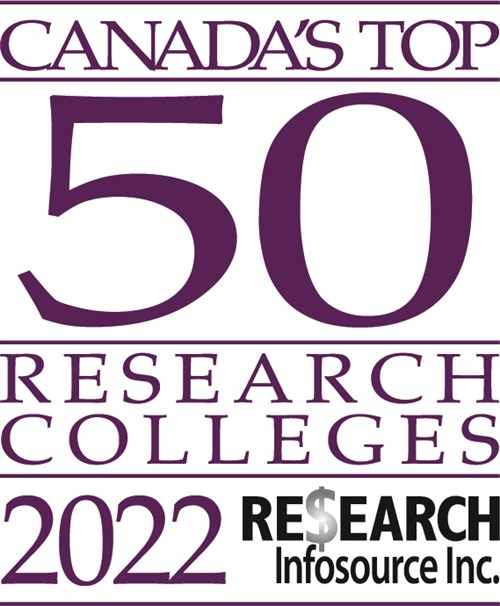STEPHENVILLE, NL – The numbers are in and College of the North Atlantic (CNA) has a lot to celebrate following today’s release of the
Research Infosource’s Canada’s Top 50 Research Colleges report for 2022.
Among the results for CNA are:
- First-place ranking for applied research among colleges in Atlantic Canada for the third consecutive year (second place for research income growth);
- Top 10 ranking in the number of paid student researchers nationally;
- Top 15 ranking in the number of “Research Partnerships, Completed Research Projects and Research Income” from NSERC (Natural Sciences and Engineering Research Council of Canada) nationally; and,
- Top 50 Research Colleges in Canada: 24th across the country for applied research and innovation.

Liz Kidd, CNA President and CEO, says she is extremely proud of this innovative work. In particular, a standout achievement for the college is the standings for its paid student researchers.
“This speaks directly to the college’s commitment to innovative real-world, experiential opportunities for students through the projects it carries out with local industry,” said Kidd. “In fact, it would be impossible to execute these projects without the advanced skillsets students bring to our projects because of their programs of study at CNA. Competing with larger institutions to secure applied research funding to pay them for their contribution is equally impressive.”
CNA is considered a medium-sized college, and these funds are used to support CNA’s goal of being a leading edge and progressive institution that is focused on enhancing its learners’ experience, as well as transforming industry sectors.
Dr. Michael Long, Dean of the Office of Applied Research & Innovation (OARI), says the college’s work has been decidedly focused on the field of “reality capture” applications. Reality capture is the process of scanning and capturing any site or object using LiDAR-sensored drones and hand-held scanners to create 3D digital models by combining measurements and imagery.
“Using advanced instruments allow us to measure environments with incredible accuracy and then process this data to form 3D models, which can be used to assist companies in their planning and decision making,” he explained. “We are attracted to this technology because it has applications in any environment whether it’s an underground mine, a heritage building, a construction site, a forest or an archeological dig.”
An example of this technologically advanced work saw
Charlie Dalton, an OARI intern, scan an abandoned copper mine in British Columbia to provide a 3D as-built model for a mining company exploring the re-opening of the mine.
Other projects have involved creating 3D scans of aircraft parts to support maintenance, repair and overhaul operations for a local aerospace company, as well as partnerships with other colleges, such as Nova Scotia Community College and Holland College, to conduct kelp bed mapping in Atlantic Canada.
“Today’s colleges, particularly CNA, are very different institutions from the once popular perception of the stereotypical ‘trade school’,” said Long. “In today’s post-secondary college environment, the amount of technology used, the expertise to effectively use it, and the skillsets required to train people on this technology is simply staggering. As Canadian colleges develop ever-increasingly complex applied research programs, we are proud to be recognized as firmly among their number.”
For more information about CNA programs, visit:
www.cna.nl.ca. To learn more about CNA’s Office of Applied Research and Innovation, visit
here.
-30-
Media contact:
Michelle Barry
Communications Manager
College of the North Atlantic
709-643-7721
Michelle.barry@cna.nl.ca